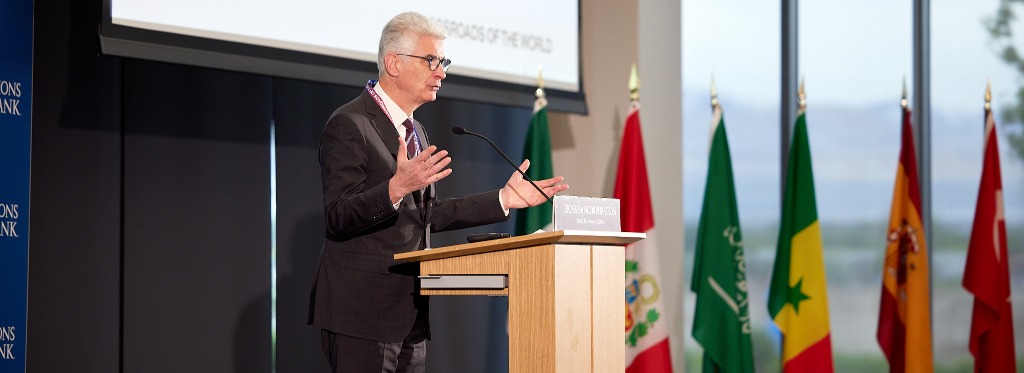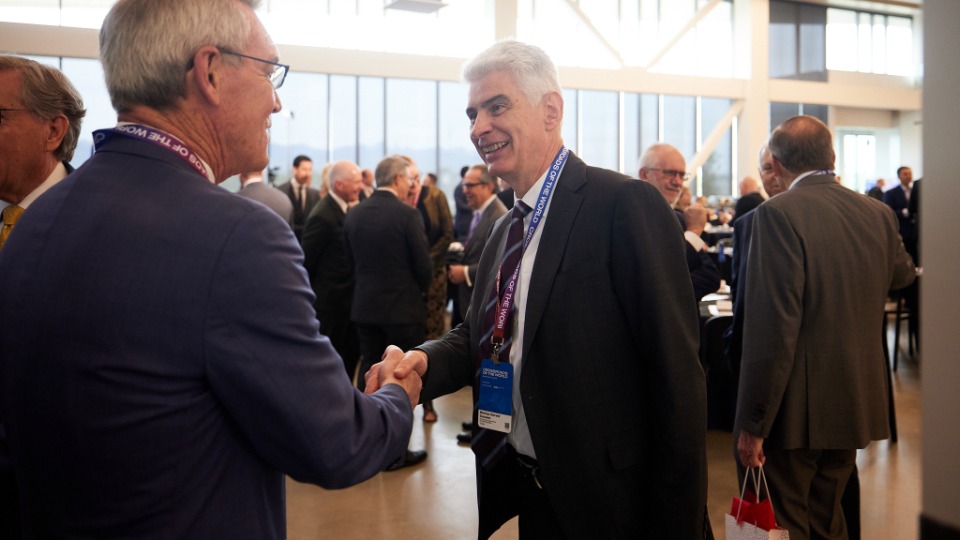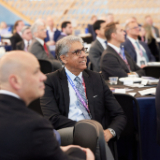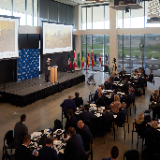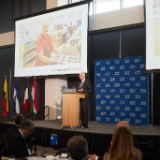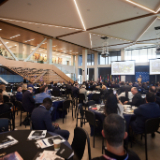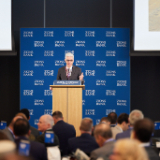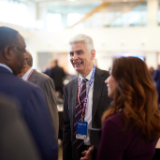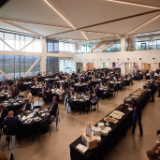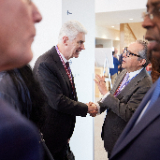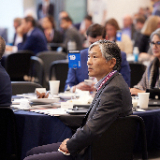Utah’s current strengths in economy, education, growth and overall opportunity have strong roots in the values practiced by Latter-day Saint pioneers.
To illustrate this for global leaders gathered for an international trade summit in Salt Lake City on the morning of Wednesday, May 22, 2024, Presiding Bishop Gérald Caussé of The Church of Jesus Christ of Latter-day Saints pointed to the values of environmental stewardship, service, education and peacemaking.
| Temple Square is always beautiful in the springtime. Gardeners work to prepare the ground for General Conference. 2012 Intellectual Reserve, Inc. All rights reserved. | 1 / 12 |
Caring for Our Natural Environment
To survive in the Great Basin, early Latter-day Saints had to wisely use the scarce natural resources at their disposal.
“For us, caring for our natural environment is much more than a scientific or political necessity,” Bishop Caussé said. “It is an expression of love to our Creator and our fellow beings. It is a sacred responsibility entrusted to us by God, which should fill us with a deep sense of duty and humility.”
Bishop Caussé said the Church of Jesus Christ seeks to set an example through wise use of resources in its global operations. He pointed to the recent example of the Church donating more than 6 billion gallons of annual irrigation water to the Great Salt Lake.
“Each of us has an important role to play within our own communities and organizations, and across the world, both to care for our brothers and sisters in need and to preserve their natural environment,” Bishop Caussé said.
Serving Each Other
Success for the pioneers in an unpredictable terrain required cooperation and contribution from everyone.
Bishop Caussé spoke of JustServe (a Church-sponsored service website and app available in 17 countries) and the faith’s 120 bishops’ storehouses (which help feed the poor) as examples of how the Church pools its resources to serve people around the world.
“We believe that our stewardship over God’s creations includes, at its pinnacle, a sacred duty to love, respect, and care for all human beings with whom we share the earth,” said Bishop Caussé. “For me, one of the most sacred aspects of serving as Presiding Bishop is the responsibility to organize temporal relief for people who are in greatest need — both inside and outside the Church. Last year, our overall efforts to care for people in need included $1.3 billion in expenditures and 6.2 million hours volunteered across 191 countries and territories.”
Promoting Education
The early Saints believed in education. They established many of Utah’s colleges, universities and high schools. The emphasis on education continues today. The Church of Jesus Christ spends more than $1 billion annually to support higher education and subsidize educational programs for more than 1 million students in the faith’s universities, seminaries and institutes. BYU–Pathway Worldwide’s affordable online higher education serves some 60,000 students in more than 180 countries.
“Our emphasis on education comes from a desire to better help and serve God’s children,” Bishop Caussé said. “Education leads to greater self-reliance. It also helps to reduce poverty, improve health, and strengthen societies.”
Peacemaking
“The early Latter-day Saints came to Utah in large part because of the persecution they had endured across various cities and states since the Church’s organization,” said Bishop Caussé. “After arriving here, they sought to establish peace and tolerance.”
That effort continues today—and its importance has never been greater.
“We believe serving alongside others helps build bridges between groups of people who might not otherwise interact due to differences in backgrounds or beliefs, but who will come together through the common value of caring for one another,” Bishop Caussé said.
The France native concluded by inviting his global audience to consider how they can bless their families, communities and countries.
“Imagine the transformation that would occur in the world,” he said, “if every community of which we are a part were made to feel like a place where our natural environment is preserved; a place where mutual love and service prevail; a place where all can become self-reliant through education and work; a place of peace where our differences are overshadowed by our common values.”